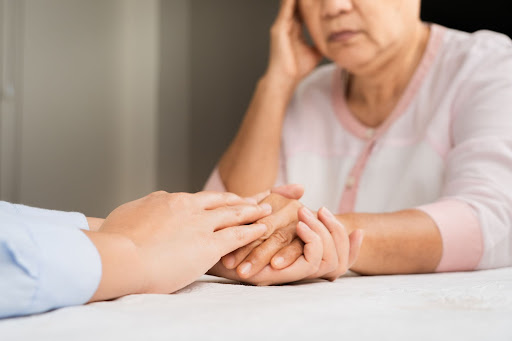How long does an elder abuse investigation take?
Nursing Home Abuse - May 14, 2023
Preying on society’s most vulnerable adults includes financial fraud, physical abuse, and mental or emotional traumatization. Perpetrators of elder abuse can be the senior’s caregivers, nursing home workers, trusted friends, or even the person’s own family members.

Investigating elder abuse is complex, especially when the victim may not know they’re being abused or fear disclosing it.
Factors that affect how long an elder abuse investigation takes
The victim’s mental state is one of the biggest factors affecting how long an elder abuse investigation takes. Many seniors may be unable to advocate for themselves. Reporting the abuse, therefore, falls on friends or family members who suspect something is wrong with their loved one.
Illinois laws stipulate when elder abuse investigations must begin:
- Is the victim in imminent danger? If there is reasonable ground to believe they are in a life-threatening situation, then the investigation (and possibly the removal of the senior from their living situation) begins within 24 hours
- If the complaint includes neglect or non-life-threatening abuse, an investigation begins within 72 hours
- If the complaint includes financial exploitation or emotional abuse, an investigation begins within seven days
In most cases, the caseworker then has 30 days to complete a comprehensive assessment to determine if elder abuse occurred and what services or interventions the victim may need.
The stages of an elder abuse investigation
Illinois has comprehensive laws governing elder abuse claims, including what is considered elder abuse and where and how to report suspected abuse.
Report the elder abuse
The first step is reporting abuse. Once the abuse report is filed, either with a group home director or the police, it’s critical to move fast. People who regularly prey on seniors can be smart about hiding or destroying evidence of abuse.
Each case is different, but the process typically unfolds like so:
- Report the abuse to Chicago Adult Protective Services (APS) or other appropriate oversight bodies, like the nursing home director or police
- Investigation by APS
Consult with your attorney
Conference with your Chicago nursing home abuse attorney, who will advise whether you have grounds to file a lawsuit against the abuser. Your attorney can also explain more specifically how long an elder abuse investigation takes based on the circumstances of your case.
File an elder abuse claim
If you and your attorney decide to file a claim for elder abuse, then the case proceeds like so:
- File the suit against the defendants, which can include nursing home workers and supervisors, swindlers, or a family member
- Discovery period, in which each side collects evidence to build their case
- Mediation or settlement negotiations – If the facts uncovered in discovery clearly indicate the defendant was abusive or negligent, then the defense lawyer may negotiate a settlement with your lawyer to avoid trial
- Civil trial before a judge and jury
Negotiate a settlement out of court or take the case to trial
We’ve often found that most cases settle out of court once we file a suit for elder abuse. If your loved one was abused in a nursing home or assisted living facility, the property owner often wishes to avoid the publicity of a big trial. However, we approach each case anticipating that we’ll put the abuser on trial, establishing strong proof of their egregious actions.
Elder abuse resources for families and seniors
These organizations support seniors’ rights and help families like yours protect their elderly loved ones:
- Illinois Adult Protective Services
- Chicago Department of Family and Support Services, Senior Services-Area Agency on Aging
- Catholic Charities Adult Protective Services
If you suspect elder abuse, you need to act fast
The legal team at Horwitz, Horwitz & Associates is here for you. We can help build a case against the abuser and file a suit for damages to recover lost assets, cover the cost of relocating your loved one away from an abusive situation, and compensate them for their pain, suffering, and emotional trauma. Contact us today at (800) 985-1819 for a free consultation.


